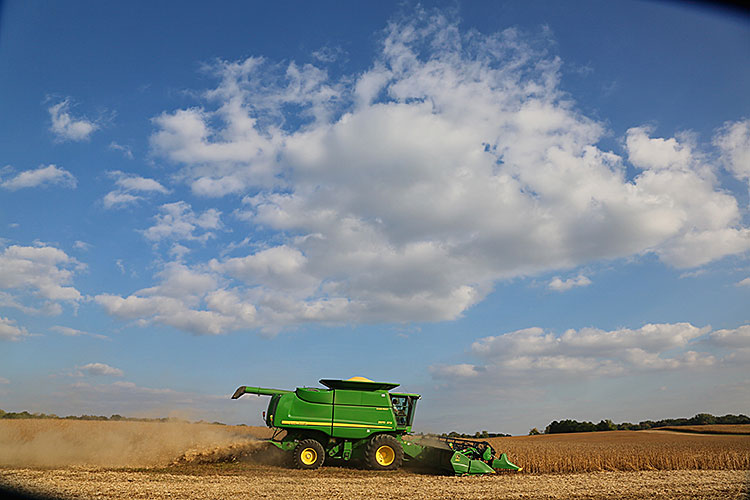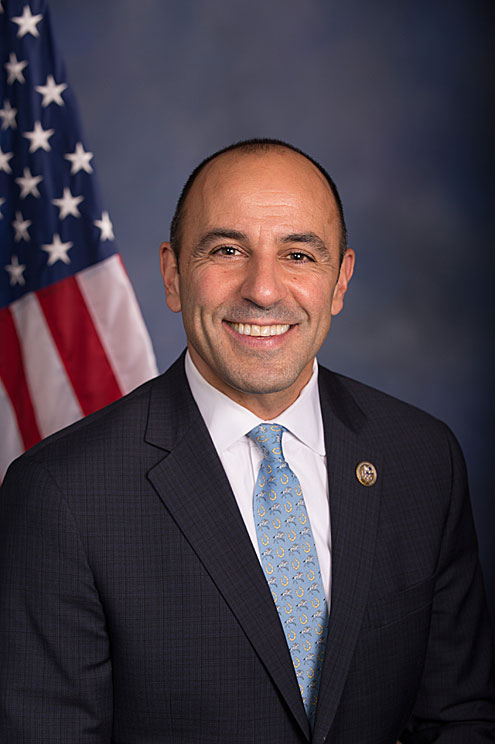 WASHINGTON, DC — Congressman Jimmy Panetta (CA-20), a member of the House Agriculture Committee, released the following statement on the 2018 Farm Bill, which was passed by the U.S. House of Representatives:
WASHINGTON, DC — Congressman Jimmy Panetta (CA-20), a member of the House Agriculture Committee, released the following statement on the 2018 Farm Bill, which was passed by the U.S. House of Representatives:
“Today’s passage of the 2018 Farm Bill, with strong bipartisan support, fulfills a promise to our farmers, rural communities, and neighbors who need assistance putting food on the table. As the proud representative of the Salad Bowl of the World, I have worked to create a Farm Bill that promotes the specialty crop and organic sectors, expands opportunities for beginning farmers, invests in agricultural research, and increases access to nutritious fresh fruits and vegetables. This bill does just that, without implementing harmful provisions that would impact over 74,000 Central Coast recipients depending on nutrition assistance programs. I am proud to support this Farm Bill, and I strongly encourage the president to sign this legislation into law.”
•••
The 2018 Farm Bill, an omnibus piece of legislation that regulates federal farm programs and nutrition assistance, includes provisions that Congressman Panetta advocated for to benefit the Central Coast:
- Nutrition Assistance: This bill preserves the Supplemental Nutrition Assistance Program (SNAP). There are no cuts to benefits, no changes to program eligibility, and no changes to the existing work requirements. This will preserve SNAP benefits for over 74,000 recipients on the Central Coast.
- Access to Fresh Fruit and Vegetables: The Food Insecurity Nutrition Assistance (FINI) grant program supports projects that expand access to fresh fruits and vegetables for those enrolled in SNAP. Locally, this project is known as the Double Up Food Bucks California. This legislation provides additional funding to support these initiatives.
- Specialty Crop Research: The Central Coast is home to a $5 billion specialty crop industry. This bill includes $80 million per year for the Specialty Crop Research Initiative (SCRI), and establishes an Emergency Citrus Disease Research and Development Trust Fund of $25 million per year to address disease response efforts in the citrus industry.
- Mechanization: The SCRI program is also expanded to include projects that address ongoing labor shortages through mechanization for specialty crops. As the existing workforce ages and shrinks, California’s specialty crop producers are seeking assistance in developing mechanization technology. Additionally, the bill requires the U.S. Department of Agriculture to conduct a review of all existing programs and develop a strategy to support additional mechanization projects.
- Organic Research: The Central Coast is home to one of the most thriving organic agriculture industries in the county. This legislation secures critical investments in the Organic Agriculture Research and Extension Initiative (OREI), establishing permanent mandatory funding of $50 million per year by 2023. I am proud that my bipartisan legislation, the Organic Agriculture Research Act (H.R. 2436), was incorporated into the final language of the Farm Bill. Additionally, this bill includes provisions that support the National Organic Certification Cost-Share Program and allow the U.S. Department of Agriculture to better protect domestic consumers against fraudulent organic imports.
- Beginning and Veteran Farmers: In order for our agriculture community to continue to thrive, we must support the next generation of farmers and ranchers. This bill does that by combining two programs, the Beginning Farmer and Rancher Development Program (BFRDP) and Outreach and Assistance for Socially Disadvantaged Farmers and Ranchers Program (Section 2501 Program), and providing permanent mandatory funding for both initiatives. The bill also expands financing opportunities for beginning farmers and veteran farmers.
- Trade: The domestic agriculture industry is facing unprecedented trade uncertainty due to retaliatory tariffs and ongoing renegotiations of major trade deals. This farm bill provides certainty for producers by combining existing trade programs and establishing mandatory funding for programs like Technical Assistance for Specialty Crops (TASC).
- Rural Broadband: To ensure that rural communities on the Central Coast continue to thrive, we must ensure they have the resources and technology to remain competitive. This Farm Bill includes strong investments in rural broadband initiatives, authorizing $350 million per year for broadband infrastructure.
- Animal Welfare: This legislation strips out a harmful provision that aimed to reverse California’s state law that provides minimum space requirements for livestock and poultry. Additionally, it outlaws slaughtering dogs and cats for meat and expands the definition of stalking to include protections for pets and service animals.
•••
Congressman Panetta is a member of the House Agriculture Committee, serving on the Nutrition Subcommittee and the Biotechnology, Horticulture, and Research Subcommittee. He is also the founder and co-chair of the House Agriculture Research Caucus.


